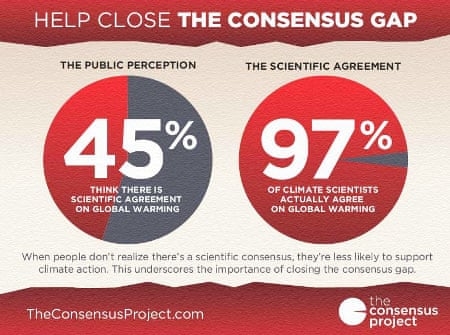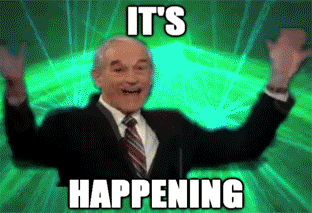Why Climate Change By Numbers Won't Change The Consensus Gap
BBC broadcast climate change by numbers documentary recently, where Dr Hannah Fry, Prof Norman Fenton and Prof David Spiegelhalter tried to address the consensus gap1, i.e. the difference between the public’s perception of how much agreement there is among scientists that humans are causing global warming compared to the scientific consensus. The documentary talked about the mathematics which was used to highlight that the climate change is happening2.
However, the producers of the program failed to address why people are still sceptical of the climate change. People indicate scepticism to highlight that they belong to a certain group. Their scepticism is like clothes which signal their stance on public policies rather than the actual disagreement. The following quote summarises the idea well
Understanding that climate change scepticism will not be overcome by a more forceful presentation of the science is a critical first step. A lot of valuable communication time will continue to be wasted on explaining the science of climate change over and over again to a group of people who have already heard everything they need to hear. Of course people need to know about the science of climate change - but once they know about it and choose to reject it, explaining it to them louder is unlikely to do much good.
Instead, communicators need to bring the real cause of disagreement out into the open, separate the science from the politics (Hulme, 2009), and make clear that although the science tells us that climate change is happening, and what is causing it, the science doesn’t tell us which way to respond.
The documentary has already been labelled as propaganda amongst the climate sceptics who inherently distrust BBC. Even though the BBC and the mainstream media haven’t got the best track record on accuracy4, BBC reporting on anything being true is a chance for conspiracy theorists to exercise reverse stupidity mistaken for intelligence and use it as counter-evidence.
What should be done instead?
It is high time we moved on from the political debate dressed up as a scientific one to the core of the disagreement. Instead of arguing about how much humans are changing the climate, here is a list of some questions I would like to hear more about
- How will the climate change proceed in the future and how certain we are of the forecasts?
- What will be the consequences of the change in climate?
- What should be done about it?
Basic stuff like what are our options and what will those options lead to.
After all, arguing about the fact that CO2 emissions have caused the climate to change hides the real question: is reducing CO2 emissions the best way to stop the harm which will be caused by global warming?
Climate change and rationality
The BBC documentary will have some impact. What is rather unfortunate is that cognitive biases can be abused to change opinions too:
There have been a number of studies that have shown that some people will change their views of climate change based on extreme weather. It’s not enough to simply experience a heat wave — it then needs to be contextualized. It needs to be interpreted by thought leaders and trusted people in a community and by the media and scientists saying, ‘This is an indication of global warming’
I see one long-term solution to this problem: spread ideas of rationality. This is the reason this blog exists.
-
Illusration:
-
I couldn’t help it:
-
talkingclimate is an amazing resource with great material on human psychology/rationality rather than just the issue of climate change ↩
-
This statement deserves a separate post with a long list of evidence. However, as of now I would like to point out that both the West and the USSR were using mainstream media to distort public opinions during the Cold War. Did the collapse of USSR suddenly change the way the media operated in the West? My answer is unlikely. ↩

